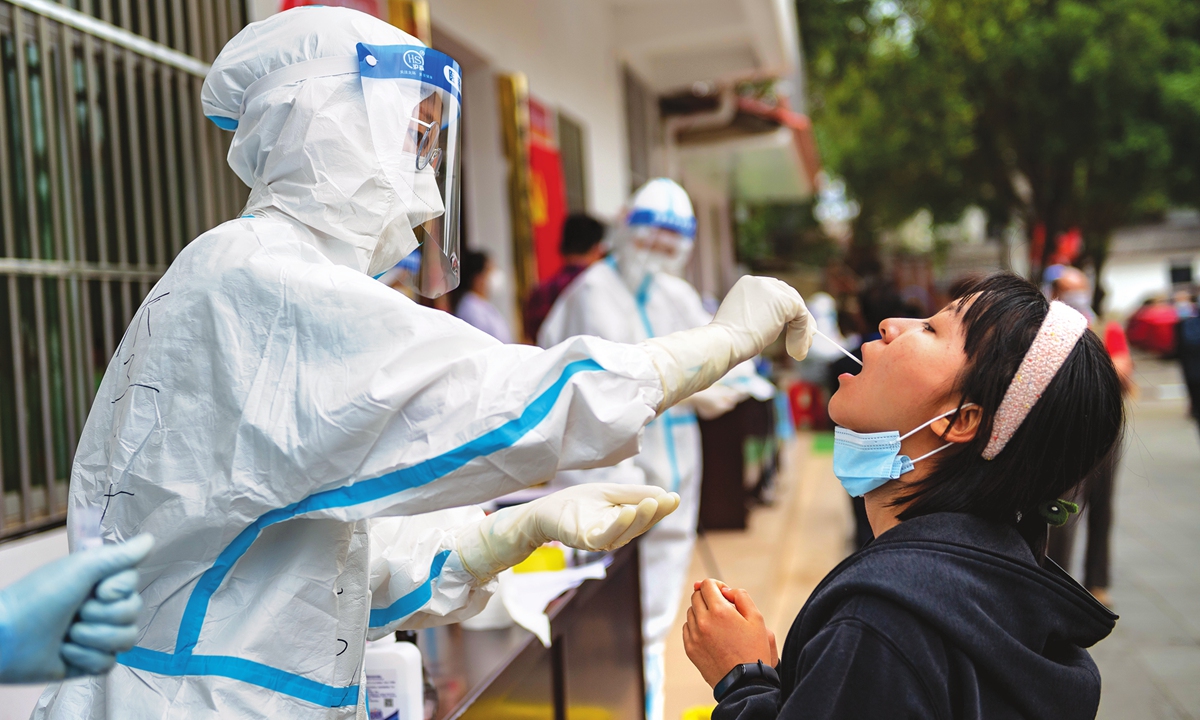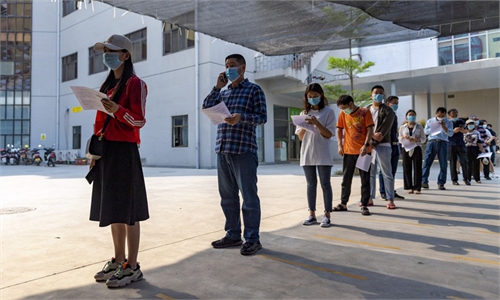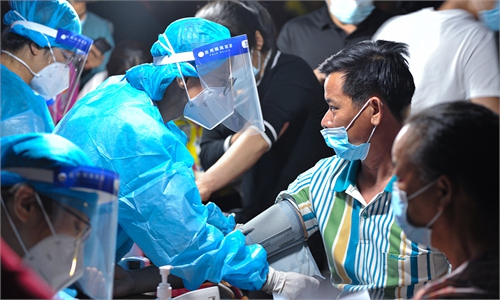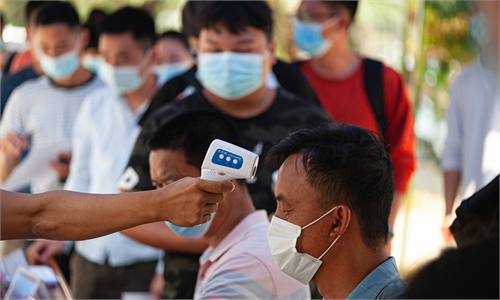
A medical worker collects a sample from a local resident in Ruili, Southwest China's Yunnan Province, for a nucleic acid test on Tuesday as the city launched a second round of mass testing. Photo:Xinhua
With pressure from a new surge of COVID-19, the China-Myanmar border city Ruili in Southwest China's Yunnan Province launched a second round of mass nucleic acid testing on Tuesday.
A total of 238,600 samples had been collected as of Tuesday 7:30 pm. It is expected that mass testing will be completed on Wednesday, said a Ruili government official at a press conference on Tuesday.
As of Monday, a total of 3.6 million doses of vaccines had been administered in Yunnan Province, covering a population of 3.232 million people, officials from the Yunnan Health Commission said at another press conference on Tuesday.
Yunnan reported 15 new cases and two silent carriers on Tuesday, bringing the total to 63 locally confirmed cases and 27 local asymptomatic patients, all from Ruili. The latest flare-up hit the city on March 30.
With a population of 300,000, Ruili started its second round of mass testing at 8 am on Tuesday, six days after it launched its first round of testing, all of which returned negative results.
There are more than 300 testing centers across the city. The testing was carried out in an orderly manner at different locations and times, a Ruili government staffer, surnamed Wang, told the Global Times on Tuesday.
The government suspended vaccination work on Tuesday, with all efforts put into the new mass testing, Wang said.
As of 2 pm on Monday, 126,000 doses of vaccines had been administered in the city after the vaccination drive started on Friday, the government said on Monday.
City-wide vaccination was rolled out swiftly and with unity from the whole city, Wang said, noting that residents sent 588 computers to the government within 12 hours after the government called for laptops for the vaccination registration work.
Ruili also launched COVID-19 serum antibody tests for key groups of the population in key areas on Monday.
To help with the anti-epidemic work for Myanmar nationals in the China-Myanmar border city, the government formed a team of more than 1,540 volunteers providing Burmese language assistance.
About 70,000 Myanmar people live in the urban area of Ruili, Du Jialing, deputy director of the Foreign Affairs Office of the Ruili government, told the Global Times on Tuesday.
Du said among all volunteers, about 800 are locals and 700 others are from all over the country, offering online translation service.
The local volunteers mainly helped the Myanmar people in testing and vaccination. A specific group also helped with epidemiological investigation and provided aid to those in quarantine.
A team of five people who work at the foreign affairs office were sent to the hospital to assist with the treatment of the confirmed Myanmar national patients, she said.
The latest outbreak in Ruili was likely imported from Myanmar via people or goods, said local health authorities on Saturday. Gene sequencing of the virus in Ruili shared a high similarity to the virus sequence previously reported in Myanmar, according to reports.
Ruili ordered all residents to carry out home quarantine.
The city on Monday raised three neighborhoods to COVID-19 high-risk areas and six other areas to medium risk, breaking the 42-day streak after China cleared all medium- and high-risk areas on February 22.



